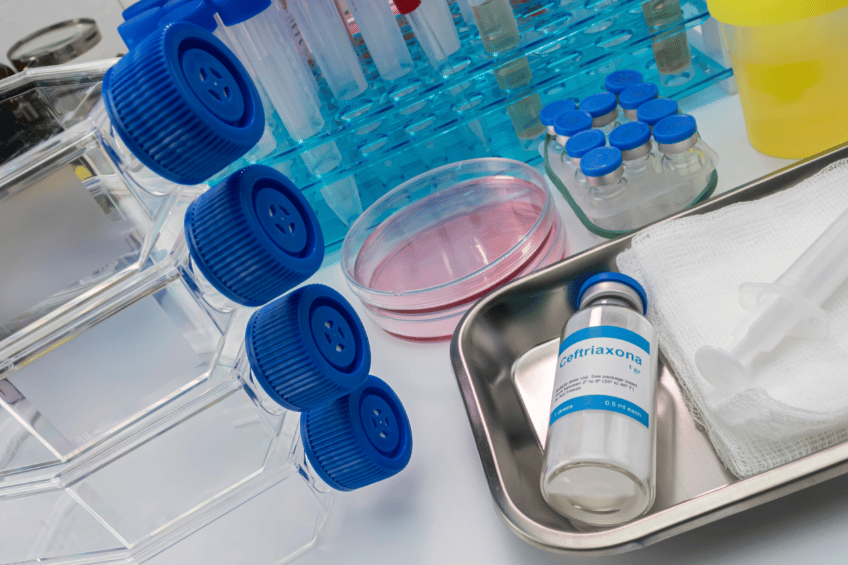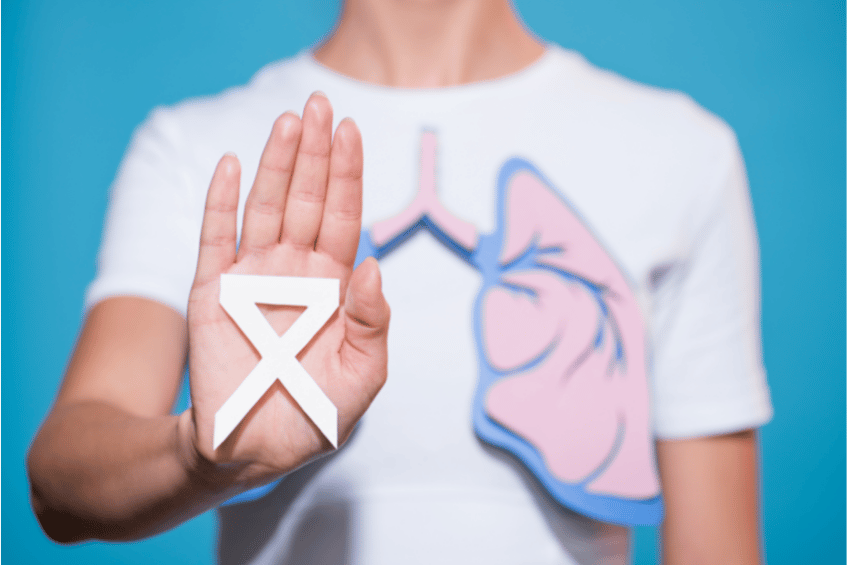Other symptoms may include:
Paraneoplastic syndromes
Some lung tumors produce substances that are released into the bloodstream and cause dysfunction of distant tissues and organs. These are called paraneoplastic syndromes. Sometimes they may be the first symptoms of lung cancer.
Some common syndromes include:
- Syndrome of inappropriate anti-diuretic hormone: In this condition, the cancer cells make a hormone that signals to the kidneys to hold water. This lowers salt levels in the blood significantly. Symptoms can include fatigue, loss of appetite, muscle weakness or cramps, nausea, vomiting, restlessness, and confusion.
- Cushing syndrome: In this condition, the cancer cells make a hormone that stimulates the adrenal glands to make cortisol. This can lead to symptoms such as weight gain, easy bruising, weakness, drowsiness, and fluid retention. Cushing syndrome can also cause high blood pressure, high blood sugar levels, or even diabetes.
- Nervous system damage: lung cancer can sometimes cause the body’s immune system to attack parts of the nervous system, which can lead to health issues such as muscle weakness, sensation changes and vision problems.
- High levels of calcium in the blood (hypercalcemia), which can cause frequent urination, thirst, constipation, nausea, vomiting, belly pain, weakness, fatigue and dizziness.
- Blood clots.

Horner syndrome
Horner syndrome is a combination of symptoms caused by the disruption of a nerve pathway from the brain to the face and eye on one side of the body. The disruption may be caused by tumors of the upper part of the lung. Certain eye nerves may be involved, causing drooping or weakness of one upper eyelid, a decreased pupil in the same eye, little or no sweating on the affected side of the face.

Superior vena cava syndrome
The superior vena cava (SVC) is a major vein that carries blood from the upper body to the heart. Sometimes it becomes blocked by the upper part of the right lung or the lymph nodes inside the chest, which can cause the blood to accumulate in the veins. This can lead to swelling in the face, neck, arms, and upper chest (sometimes with a bluish-red skin color). It can also cause headaches and dizziness.
The causes of lung cancer are not fully understood, and some people develop lung cancer without having any known risk factors. That’s why you should always be attentive to your health and if you suspect any of the symptoms, see a doctor.
